Discover UnHerd with Freddie Sayers
UnHerd with Freddie Sayers

UnHerd with Freddie Sayers
Author: UnHerd
Subscribed: 1,582Played: 106,277Subscribe
Share
© UnHerd Limited
Description
Freddie Sayers from online magazine UnHerd seeks out top scientists, writers, politicians and thinkers for in-depth interviews to try and help us work out what’s really going on. What started as an inquiry into the pandemic has broadened into a fascinating look at free speech, science, meaning and the ideas shaping our world.
Due to popular demand here is a podcast version of our YouTube — available to watch, for free here or by searching ‘LockdownTV’.
Enjoy! And don't forget to rate, like and subscribe wherever you get your podcasts.
Hosted on Acast. See acast.com/privacy for more information.
357 Episodes
Reverse
UnHerd's Freddie Sayers talks to Greg Lukianoff, president of the Foundation for Individual Rights and Expression (FIRE), about a new report revealing that 2025 has officially surpassed 2020 as the worst year on record for campus censorship and scholar sanctions. Despite the Trump administration’s campaign promises to restore free expression, Lukianoff details a disturbing shift where the political right has adopted the very cancel culture tactics it once decried, led by government officials who are now directly intervening to investigate, defund, and even deport students for controversial speech. From the fallout of the Charlie Kirk assassination to the use of executive orders to ban student groups, they explore why the new wave of state-sponsored retaliation is creating a chilling effect across American universities. Hosted on Acast. See acast.com/privacy for more information.
UnHerd's Freddie Sayers speaks with Steve Gallant, a convicted murderer who served 16 years in prison and became known as a hero during the 2019 London Bridge terror attack, where he famously helped subdue the attacker, Usman Khan, with a narwhal tusk on his first-ever day release.Gallant recounts the dramatic events of that day, which led to a royal pardon and an early release, but the conversation delves deeper into the complex reality of rehabilitation and the growing threat of organised Islamist terror networks—or "the Brotherhood"—who are gaining authority and converting other inmates within the UK's high-security prisons. Gallant offers an urgent warning on the failures of the system to challenge radical ideology and reflects on the difficult question of whether true change is possible for long-term prisoners. Hosted on Acast. See acast.com/privacy for more information.
UnHerd's Freddie Sayers speaks with migration expert Dr. Madeleine Sumption to dissect the latest ONS figures which reveal a dramatic crash in UK net migration. Is this truly caused by an alarming "exodus of fed-up Brits," as some headlines suggest, or is the surge in people leaving the country, in fact, the long-overdue re-migration of earlier non-EU and EU immigrants—a data-driven truth that fundamentally upends how the media and public understand the entire politics of immigration? Hosted on Acast. See acast.com/privacy for more information.
UnHerd's Freddie Sayers speaks with Oxford epidemiologist Professor Sunetra Gupta - one of the three primary authors of the Great Barrington Declaration - to uncover why the UK’s massive £200 million COVID inquiry has produced a conclusion she calls an "insult" to the public intelligence. With the report claiming that locking down just one week earlier would have saved 23,000 lives, Gupta dismantles the modelling behind the headline and ask the questions the inquiry refused to: Why was the clear counter-evidence of Sweden ignored? And did the scientific establishment betray its own duties by choosing the certain harm of lockdown over the uncertain control of a virus? Hosted on Acast. See acast.com/privacy for more information.
UnHerd's Freddie Sayers gives his reaction to the UK’s £200 million COVID inquiry and the official narrative. After 800 pages, the report reaches the conclusion that Britain’s only mistake was not locking down sooner - but at what cost? From the missing chapter on Sweden’s success to the ignored collateral damage inflicted on a generation of children, was the lockdown experiment actually a civilisational error that the state is now too afraid to admit? And is the inquiry an establishment whitewash that sets the stage for future authoritarianism? Hosted on Acast. See acast.com/privacy for more information.
UnHerd's Freddie Sayers talks with writer and philosopher Matthew Crawford about the creeping tyranny of the "Smart City"—a vision of the future where urban life is optimised by data, and human unpredictability is treated as a "bug" to be fixed. But what is the spiritual cost of a "frictionless" existence? As tech giants begin to govern like nation-states and cars become subscription services that can be throttled from afar, Crawford asks the question: are we building paradise, or a "glorious, collisionless" prison? From the defiance of skateboarders to the ULEZ "Blade Runners" destroying cameras in London, they discuss the fight to reclaim the "unruly felicities" of a life truly worth living. Hosted on Acast. See acast.com/privacy for more information.
UnHerd's Freddie Sayers dives into the legal and political firestorm surrounding President Trump's threatened lawsuit against the BBC. He is joined by three expert guests to unpack the case from every angle: Professor Burt Neuborne, founding legal director of the Brennan Center for Justice at NYU School of Law, analyses the US legal arguments and whether Trump can actually win; Joshua Rozenberg, legal journalist and the BBC's former legal correspondent, discusses the internal crisis at the BBC and its "perceived liberal bias"; and Seth Stern, director of advocacy at the Freedom of the Press Foundation, explores the wider "chilling effect" of such lawsuits on press freedom. Hosted on Acast. See acast.com/privacy for more information.
UnHerd's Freddie Sayers talks with Professor of Economic Policy at the University of Oxford, Sir Dieter Helm, about the great climate "self-delusion." As global leaders, royals, and celebrities jet into Rio for the 30th UN Climate Summit (COP 30), Helm - one of the world's most respected climate economists - argues the entire Net Zero project, championed by the very elites at the summit, is built on smoke and mirrors, and reveals: why 30 years of COPs have been ineffective; the core deceit politicians have been telling the public for decades; how the West's green policies are actually helping China while leading to our own self-sabotage; and why the UK's "clean energy" dream is a fantasy that is leading to economic ruin. What is the real path forward, and is it too late to fix the mess we've made? Hosted on Acast. See acast.com/privacy for more information.
In the wake of the Huntingdon train stabbing and ensuing online reaction, UnHerd's Freddie Sayers sits down with journalist for The Times Fraser Nelson to analyse the growing perception of a violent, migrant-driven crimewave in the UK. Responding to disputed data from the Ministry of Justice that foreigners are convicted of up to 23% of sex crimes, as well the rise in low-level crime and isolated atrocities, Nelson argues against the narrative and details how violent crime, including knife attacks and murder, has actually been in a steep decline, reaching multi-decade lows even as immigration has doubled. Is the migrant crimewave real or is there a stark disconnect between the statistical reality and the public's fear? Hosted on Acast. See acast.com/privacy for more information.
If the polls are to be believed, Zohran Mamdani—a self-described democratic socialist—is poised to become the next mayor of New York City. His history as a police abolitionist, calls for wealth redistribution, and fierce criticisms of Israel have rankled the Big Apple’s old guard, while galvanizing many young Gothamites, including a majority of young Jews.So: should we fear Mayor Mamdani?Join UnHerd for an exclusive in-person debate at our Manhattan headquarters, featuring our columnist Ross Barkan and progressive activist and whistleblower Lindsey Boylan (in support of Mamdani) versus the New York Post’s Miranda Devine and National Review’s Caroline Downey (in opposition). Hosted on Acast. See acast.com/privacy for more information.
In this first episode of The Econoclasts, Yanis Varoufakis and Wolfgang Munchau debunk two failed economic orthodoxies shaping our world. First, they dismantle the narrative that Europe is helping Ukraine - and striking a powerful blow against Russia - by raiding Russia’s frozen assets. More than this being legally questionable, is it also economically and geopolitically self-defeating? Next, they expose the "battle" between central banks and anti-establishment crypto rebels as a false choice, revealing it as a dangerous illusion that serves the powerful. Far from being revolutionary, are stablecoins turbo-charging financial instability for the next global crash? Hosted on Acast. See acast.com/privacy for more information.
UnHerd's Freddie Sayers speaks with Helen Andrews, former senior editor at The American Conservative and author of Boomers, to discuss her provocative and widely-debated article in Compact Magazine "The Great Feminization". They discuss: why female group dynamics (consensus-seeking, covert undermining, social ostracism) are the engine behind cancel culture; the threat a "feminised" legal system poses to the objective "rule of law," replacing evidence with emotional sympathy; and why this shift wasn't a meritocratic victory, but the result of "social engineering" that makes it "illegal for women to lose." Is this the unspoken truth behind our institutional collapse? Watch the full, explosive conversation with Helen Andrews. Hosted on Acast. See acast.com/privacy for more information.
In the age of reason and rationality, what room is there for the transcendent? Authors of the bestselling book God, the Science, the Evidence, Michel-Yves Bollore and Olivier Bonnassies, challenge the materialist consensus and argue that the origins of the universe could still be the work of a creator. They join UnHerd's Freddie Sayers to discuss their research and what it might reveal... Hosted on Acast. See acast.com/privacy for more information.
On what would have been her 100th birthday, Freddie Sayers chairs a spirited debate on Thatcherism and the Iron Lady’s place in Britain’s story. How should we understand her legacy in 2025? Did she transform the country for the better — or does she bear responsibility for many of today’s problems? In this all-star debate, journalists Peter Hitchens and Suzanne Moore go head-to-head with former Conservative politician and Spectator editor Michael Gove, and political analyst Reem Ibrahim, in a lively clash over the most divisive figure in modern British history. Hosted on Acast. See acast.com/privacy for more information.
Freddie Sayers sits down with Professor of Politics at the University of Buckingham, Eric Kaufmann, to discuss his latest report on “The Decline of Trans and Queer Identity among Young Americans”, which reveals a significant and surprising shift in the landscape of gender and sexual identity among Generation Z. Professor Kaufmann explains his findings, which show a sharp drop in both trans and queer identification since 2023. Drawing on data from large-scale surveys of US undergraduates, he details how the share of trans-identified students has nearly halved in just two years. Their discussion explores the data, including trends in elite institutions, and delves into the potential reasons for this decline. Is it linked to changes in mental health, the growing distance from the pandemic and lockdowns, or the so-called “anti-woke” vibe shift? Hosted on Acast. See acast.com/privacy for more information.
Freddie Sayers sits down with renowned cognitive psychologist, author, and Harvard Professor of Psychology Steven Pinker to discuss his latest book, When Everyone Knows That Everyone Knows... and explore how common knowledge shapes our social, political, and economic worlds. Their conversation delves into the power and pitfalls of collective thinking, the dynamics of cancel culture and censorship, and the Trump administration’s clashes with academic institutions like Harvard. They also consider whether democracy is in decline, if society is losing its shared sense of reality, and whether there’s still reason to be optimistic about the future. Hosted on Acast. See acast.com/privacy for more information.
UnHerd’s Contributing Editor Jonny Ball (aka Despotic Inroad) sits down with Lord Maurice Glasman, the Labour peer and political theorist behind Blue Labour, at Labour party conference 2025 in Liverpool. UK Prime Minister Keir Starmer is under fire and polling as the least popular on record — Glasman argues that the party faces a battle for its very soul.In this conversation, he traces the history of the movement he founded, Blue Labour, and its critique of the Labour party’s transformation into what he sees as metropolitan and liberal, detached from its working-class roots. Glasman highlights how the working class and young voters are drifting to Nigel Farage’s Reform, why the best predictor of whether you vote Labour is whether you went to private school, and what it would take to reverse Labour’s decline: a renewed focus on industrial strategy, job creation, and working-class empowerment.Can Blue Labour stop Reform’s rise and save Labour? Could Reform actually replace Labour as the voice of working people? And what, if anything, should Labour learn from MAGA and Trump’s populist success? Hosted on Acast. See acast.com/privacy for more information.
UnHerd’s Freddie Sayers welcomes Paul Kingsnorth to the UnHerd Club an exclusive interview about his new book Against the Machine. Kingsnorth has spent decades charting the alienation and upheaval brought about by modernity. In this wide-ranging interview he sets out why he sees today’s technological order as inhuman, why AI may be the 'Antichrist', and why he believes the West must be allowed to die.What does it mean to live as a dissident inside the Machine? And what lines must we draw if we are to remain human? Hosted on Acast. See acast.com/privacy for more information.
Has the political Right become what it once despised? In the aftermath of Charlie Kirk's assassination, a wave of firings and online campaigns has many asking if a "woke right" has finally arrived, adopting the very tactics of cancel culture it used to condemn. Freddie Sayers sits down with author and commentator James Lindsay for a conversation about this dangerous new chapter in the culture wars. As calls for "retribution" grow louder, what is the line between legitimate accountability for those in public trust and the illiberal, mob-like vengeance taking hold? Hosted on Acast. See acast.com/privacy for more information.
Freddie Sayers speaks with Dr. Martin Kulldorff — co-author of the Great Barrington Declaration and newly appointed chair of the CDC’s Advisory Committee on Immunization Practices (ACIP) — to discuss his and Robert F. Kennedy Jr.’s views on vaccines, the recent turmoil at the CDC that has seen senior officials resign or be removed, and his reflections on the global pandemic response, from Sweden’s no-lockdown strategy to the United States’ vaccine mandates. Hosted on Acast. See acast.com/privacy for more information.


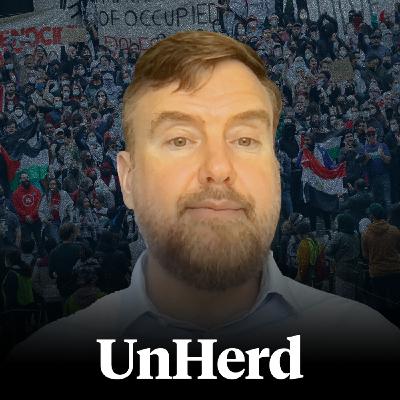
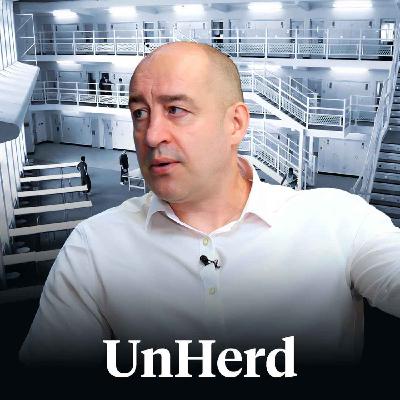
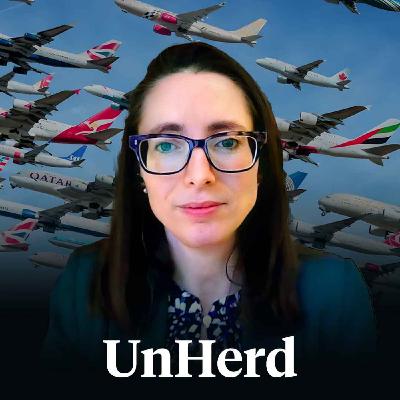

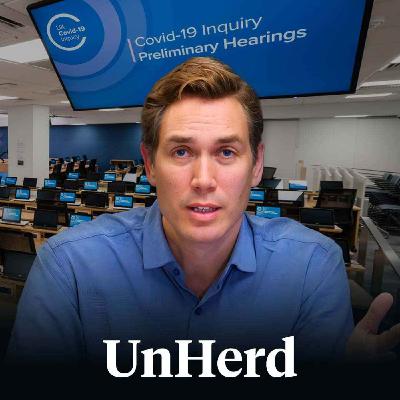

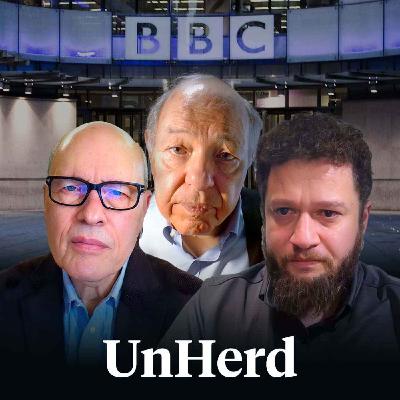
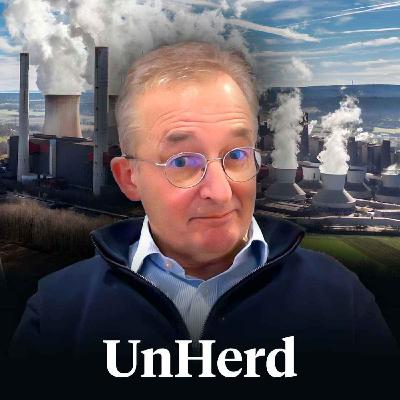
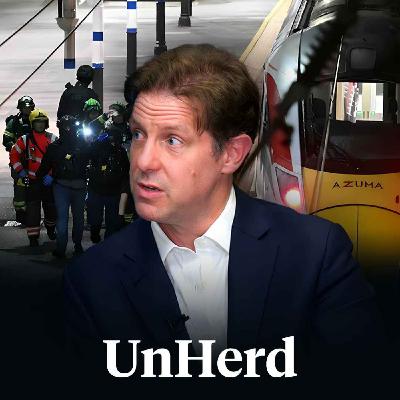
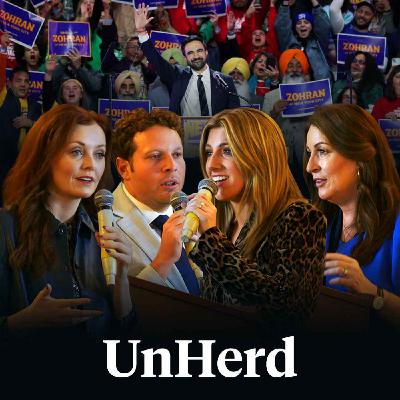
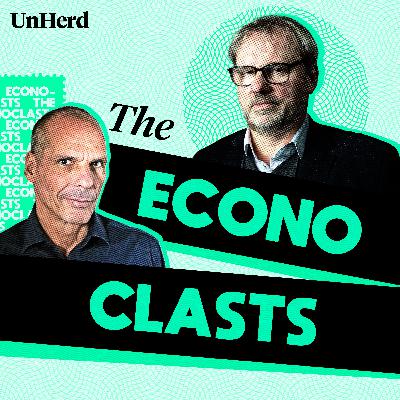
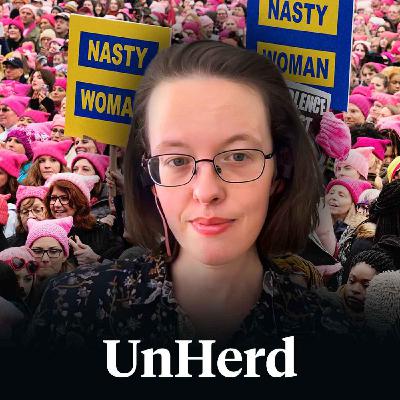
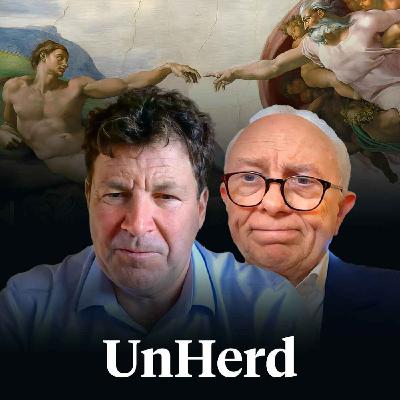


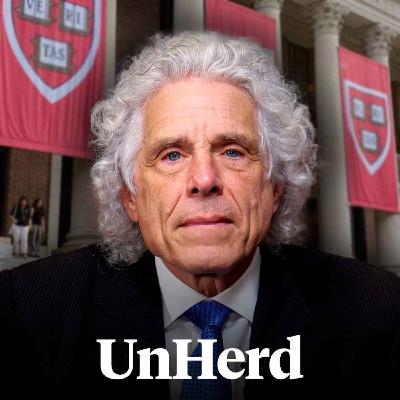
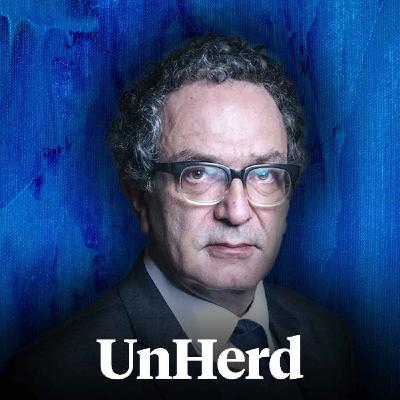
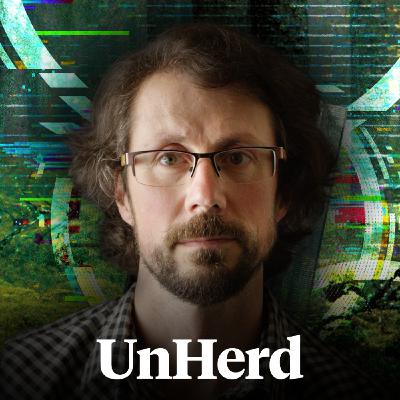





Mearsheimer's fundamental error is to assume the Israelis are the aggressors. But it's Iran that wishes to destroy Israel - they have said so, and worked to achieve that goal.
A new religion.
yanis totally wrong about ais election
Dumpster diving?! Wow. Glad I'm not young enough to consider her.
could they have chosen a more out of touch panel
you can't say that anymore
Of course people who make a good living out of podcasts are going to trash the 'legacy media'. There's a need for both to help shed light on the world.
Fuck this warhawk.
I hoped for more pushback here. Shrier makes bizarre claims without support, misrepresents research, sneers at and strawmans opposing positions. She's a journalist selling a book and has no expertise in any relevant area, which is obvious when you isolate the truth claims from the style of presentation. It's a pity; her central claims are worthy of exploration and have some support in the relevant fields. They are not, however, original or well presented.
Patrick Brown is not fully informed. Climate is very complex but both past geologic proxy measurements and comparing the second derivative of the Keeling CO2 curve to satellite atmospheric temperature measurements clearly show temperature changes before CO2 concentrations change. It is clear that CO2 is not a major factor affecting Earth's atmospheric temperature. The global warming hypothesis has reversed cause and effect. Look at the measurments, you will be relived.
Great balanced interview. It's hard to imagine that there were no repercussions given the existing law at the time.
This conversation with Konstantin shows up Freddy as very woke. He doesn't get the reality of the situation.
Love Glenn! Great interview!
A bit disjointed. WTF is "biological oppression"? I would need an explanation otherwise all I can think of is biological reality.
No doubt, sooner or later, a publisher with more integrity than Pan Macmillan will snap Clanchy up. Her emotional pain at being outcast by her publisher and pursued by a tiny, hateful mob on Twitter was palpable. The hounding abuse she has been subjected to is disgraceful.
Prof. Baylor, respectfully, Re covid vaccines: Thoughtful people take the best decision for themselves based on their own risk/benefit analysis. Over 7,000 people have died in the U.S. from the vaccine, and over 1,000 mostly young males have developed myocarditis. My son knows a healthy guy in his 20s who died within two days of receiving the vaccine. That young man essentially had zero risk of death had he caught the virus. Seems understandable to me that some of his family and friends now are vaccine hesitant. Your comment about the unvaccinated being mostly Trump voters was made to be an insult. That kind of nudging probably is counter productive and makes you look like an ass. -KB (she/her/vaccinated)